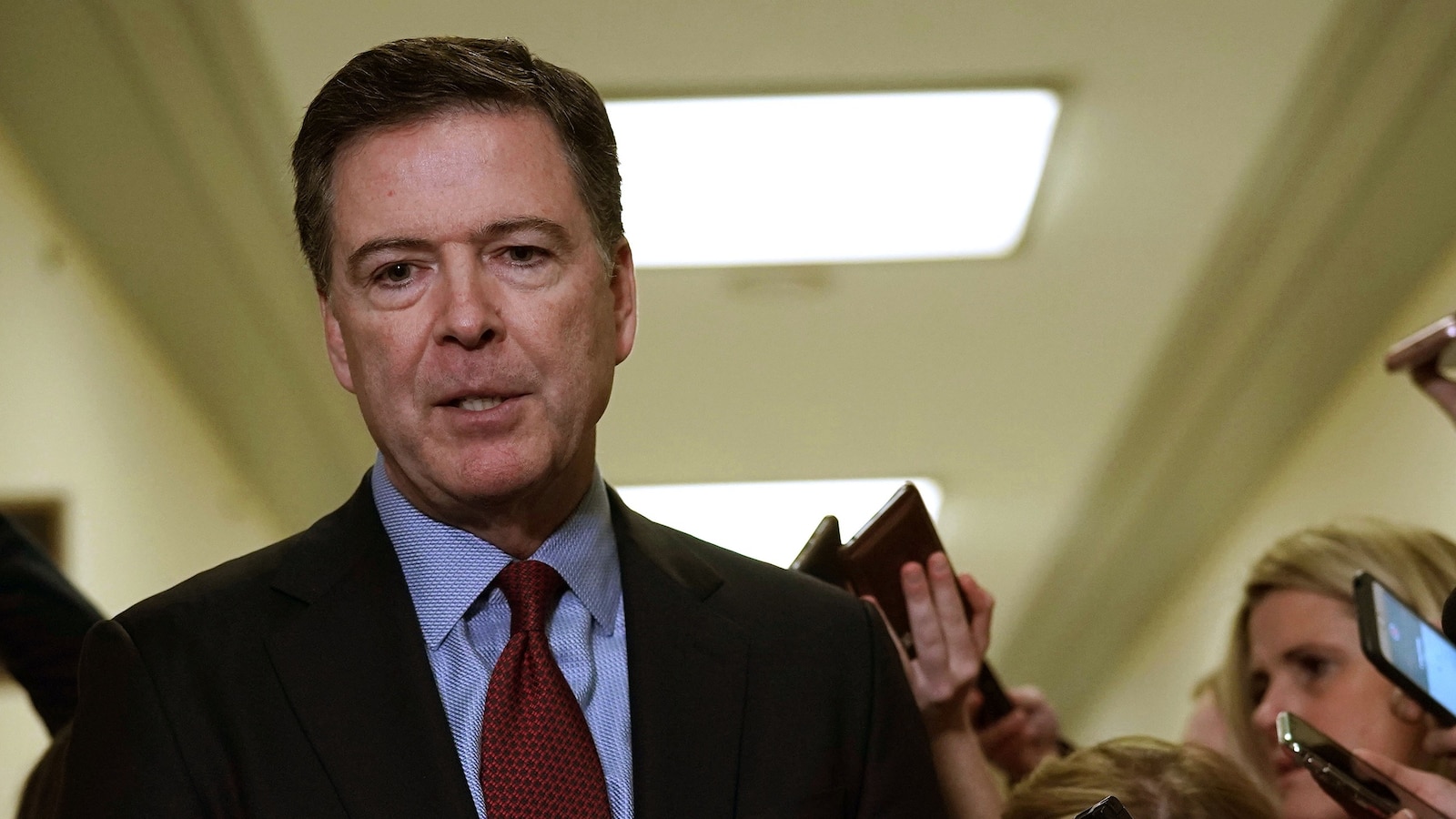James Comey Faces Tense First Court Appearance in Explosive Indictment Case
In the heart of Washington D.C., a courtroom drama unfolds today as former FBI Director James Comey steps into federal court for his inaugural appearance following a bombshell indictment. This high-stakes moment, tied to allegations of lying to Congress and obstruction, has reignited fierce debates over justice and power in America.
The James Comey court appearance marks a pivotal chapter in the ongoing saga of political retribution, with the Comey indictment drawing parallels to Trump targeting enemies through the Department of Justice. Questions swirl around DOJ independence as critics decry the timing—mere days after President Trump’s public calls for prosecution—and fears of false statements to Congress charges undermining democratic norms. Legal watchers predict this could expose cracks in the case, potentially swaying public trust in federal institutions.
Comey, once the top cop at the FBI, now finds himself on the defensive. The two-count felony indictment, handed down by a grand jury on September 25, accuses him of making a false statement during his September 30, 2020, testimony before the Senate Judiciary Committee. Prosecutors claim he denied authorizing the leak of a classified memo detailing his interactions with then-President Trump, a document that later fueled the Russia investigation headlines. The second charge alleges obstruction of a congressional proceeding, pointing to efforts that allegedly impeded lawmakers’ probes into FBI operations.
This isn’t Comey’s first brush with controversy. Appointed FBI Director in 2013 under President Obama, he led the bureau through turbulent times, including the Hillary Clinton email saga and the early stages of the Trump-Russia probe. Trump fired him abruptly in May 2017, citing the Russia investigation as a key factor—a move that prompted Comey’s own tell-all book, “A Higher Loyalty,” and a special counsel appointment for Robert Mueller. Fast-forward to 2025, and the charges stem from that very era, with the indictment surfacing amid Trump’s return to the White House and vows to settle old scores.
Public reactions have been swift and polarized. Democratic leaders, including Senate Minority Leader Chuck Schumer, labeled the Comey indictment a “sham orchestrated by Trump” to weaponize the DOJ against perceived foes. On the flip side, Trump allies like House Speaker Mike Johnson hailed it as “long-overdue accountability for deep-state antics.” Legal experts weigh in with caution: Former prosecutor Barbara McQuade told CNN the case carries a “fatal flaw,” as prior investigations by Special Counsel John Durham failed to uncover the same evidence now cited. Social media buzzes with hashtags like #ComeyIndictment and #JusticeForTrump, reflecting a nation divided on whether this is revenge or reckoning.
For everyday Americans, the stakes feel personal. This James Comey court appearance isn’t just Beltway theater—it’s a litmus test for the rule of law that underpins our democracy. In an era of eroding trust in institutions, where polls show only 40% of voters believe the DOJ operates independently, today’s hearing could amplify fears of politicized justice. Politically, it energizes Trump’s base ahead of midterms, potentially shifting voter turnout in swing states like Pennsylvania and Georgia. Economically, prolonged legal battles tie up resources, diverting focus from pressing issues like inflation and job growth. And for tech-savvy readers glued to their phones, it underscores the perils of digital leaks in an age where one memo can topple careers.
User intent here is clear: Americans want transparency on whether federal probes serve justice or vendettas. Comey’s team has signaled plans to invoke the Speedy Trial Act, pushing for a trial within 70 days to expose weaknesses early. Sources close to the defense argue the charges recycle debunked claims from years past, with one anonymous FBI veteran telling Reuters, “This reeks of selective prosecution—Comey’s no saint, but neither is the timing.”
As the gavel falls in D.C. this afternoon, all eyes turn to Judge Elena Ramirez, presiding over the arraignment. Will Comey enter a plea? Demand discovery? The session promises procedural fireworks, but beneath the spectacle lies a deeper question: Can the DOJ firewall hold against White House pressure? Early indicators suggest a protracted fight, with appeals likely if bail is denied—a rarity for white-collar cases like this.
Looking ahead, this case could cascade into broader scrutiny of Trump-era holdovers in the DOJ. A fired prosecutor, wrongly linked to the probe, highlights internal rifts already. For U.S. readers, the Comey indictment saga reinforces the need for vigilant oversight, ensuring that justice remains blind, not beholden. As developments unfold, staying informed means navigating a landscape where facts often clash with fervor.
The James Comey court appearance today spotlights the Comey indictment’s core tensions, from Trump targeting enemies to threats against DOJ independence. Echoing concerns over false statements to Congress, it challenges all of us to demand accountability without anarchy, shaping the political battles yet to come.
By Sam Michael
Follow and subscribe to us for push notifications on breaking political news—stay ahead of the curve!
James Comey, Comey indictment, James Comey court appearance, Trump DOJ, FBI director charges
